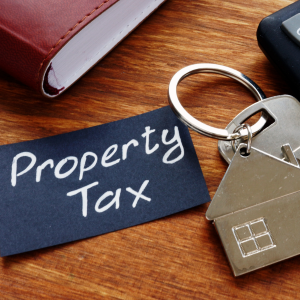
Understanding the Legal Aspects of Selling a House During Divorce in Virginia
Selling a home during a divorce in Virginia involves understanding specific legal steps to ensure everything goes smoothly. Since Virginia follows equitable distribution, marital property like real estate must be divided fairly, though not always equally. Determining whether the house is marital or separate property is essential—typically, homes bought with joint funds during the marriage fall under marital property.
There may be a prenuptial agreement that affects ownership rights, so it needs to be carefully researched. Listing and selling the house generally requires agreement from both spouses, unless a court order says otherwise. Take care of any mortgages or liens that are still due as well, as these debts affect both parties even after the sale.
If you take care of these legal issues right away, such as understanding squatters’ rights, you can avoid future disagreements and make sure the sale follows Virginia law, which will help the divorce go more smoothly.
Navigating Property Division Laws in Virginia Divorce Cases
In a Virginia divorce, it’s important to know how property is split, especially when real estate is involved. Virginia’s method of equitable distribution divides property fairly, but not always equally. Only things that were bought during the marriage are considered marital property. Things that were bought before the marriage, as gifts, or as inheritances are usually considered separate property.
In the event of a divorce, the proceeds from the sale of a home must be divided according to several factors, such as how much money each partner contributed, how long the marriage lasted, and what each person needs in the future. Therefor, it is important to know exactly how much of the property value goes to each spouse.
Working with a knowledgeable attorney and a realtor experienced in divorce cases can help you navigate this process with confidence. Knowing how Virginia law treats property division allows you to protect your interests while making informed decisions during the home sale.
Key Steps to Prepare Your Home for Sale Amidst a Divorce
Selling a home during divorce can be emotional, but a well-prepared property increases your chances of a successful sale. Start by depersonalizing the space—remove personal items, family photos, and clutter to help buyers imagine themselves living there. A clean, neutral environment feels more spacious and welcoming.
Doing simple things like fixing leaky faucets or replacing old, worn-out items can make your home more appealing to buyers. It can also help a lot to stage your home with simple, modern furniture. During a stressful time, this may seem like a bother, but small efforts can lead to bigger deals.
Work with a realtor who understands the complexities of selling a home during a divorce—they can help you navigate pricing and marketing strategies tailored to your unique situation. These thoughtful steps can make the process smoother and boost your chances of a fast, successful sale. We buy houses in Richmond for cash, so if you’re looking for a quicker solution, reach out today.
How to Handle Mortgage Liabilities When Divorcing in Virginia

Mortgage responsibilities don’t disappear during a divorce, and it’s critical to address them early in the home-selling process. First, determine if the mortgage is in both spouses’ names or just one—this affects liability, refinancing options, and whether selling is the best choice.
If neither people want to keep the house, selling it might be the best way to get rid of the debt. If someone wants to stay, they might be able to refinance the loan into their own name, but only if the backer agrees and they make enough money. Not paying attention to mortgage details can cause late payments, credit problems, or even foreclosure, so it’s important to be honest with your lender.
There are real estate lawyers and financial advisors who specialize in divorce who can help you understand how Virginia law handles joint bills and help you get the best result. Planning ahead can help you get a better divorce and avoid future money problems.
Financial Implications of Selling a Marital Home During Divorce
Selling a marital home in Virginia during divorce brings several financial considerations that both parties must evaluate carefully. One major factor is how sale proceeds will be divide, especially under the state’s equitable distribution rules. This requires reviewing who contributed financially and how much equity exists in the home.
Capital gains tax may also apply if the home has appreciated significantly in value. You’ll want to check if you qualify for tax exemptions—such as the $250,000 individual or $500,000 joint exclusion—for selling a primary residence. Don’t forget to account for closing costs, realtor fees, and any repair expenses, as these will reduce the final payout.
Financial and legal experts should be consulted in order to fully understand how the sale will affect taxes and the law. You can make smart decisions and avoid unpleasant surprises during a stressful time if you have the right advice.
Common Mistakes to Avoid When Selling a House During Divorce
Divorcing homeowners in Virginia often make costly errors when selling a property, many of which are avoidable with clear planning. One of the biggest mistakes is poor communication with your ex-spouse, which can delay or derail the sale entirely. It’s essential to agree early on the sale price, terms, and which realtor will handle the listing.
Another common mistake is skipping steps that are necessary, like staging or fixing things that need to be fixed. A unkempt home may turn off buyers or get lowball offers because first impressions are important. You might also accept less than the home is worth if you are in a hurry to sell, especially if you are feeling stressed.
Additionally, many sellers don’t think about Virginia’s specific property division rules, which can lead to problems after the sale. In a tough time, avoiding these mistakes will make the process less upsetting and help protect your financial interests.
Tax Considerations for Divorced Couples Selling Property in Virginia

Taxes can be a major factor when divorced couples in Virginia sell a shared home. The biggest concern is typically capital gains tax, especially if the home has appreciated in value. Fortunately, you may qualify for a capital gains exclusion—$250,000 per individual or $500,000 jointly, depending on your filing status and residency history.
To take advantage of this, you must have lived in the home for at least two of the past five years before the sale. Timing is key, especially if your divorce will affect your filing status. Additionally, consider how the sale proceeds will impact your individual taxable income, which can influence how much you owe in both federal and state taxes.
Working with a tax professional familiar with divorce-related property sales is highly recommended. They can help minimize your tax liability and make sure all reporting requirements are handled correctly, helping both parties move on with fewer financial headaches.
Strategies for Equitably Dividing Real Estate Assets in Divorce
In Virginia, dividing real estate during a divorce takes more than just agreeing to sell the house—it requires a well-thought-out plan. One of the first steps is understanding the costs associated with a home appraisal for a divorce case, and obtaining a professional estimate to determine your home’s current market value. This crucial step helps you decide whether to sell the property or have one partner buy out the other’s share.
The fair distribution rule in Virginia doesn’t mean a 50/50 split. The court may look at how much money and time each person put into the marriage, how long the marriage lasted, and how stable each person’s finances will be after the divorce. Also, you need to think about taxes and transaction costs because they change the net profits.
If emotions are running high, consider mediation to resolve disagreements around the home. An experienced realtor familiar with divorce situations can guide you through listing, marketing, and negotiating while remaining sensitive to the complexities involved. With the right approach, both parties can achieve a fair outcome without prolonged conflict.
Timing the Sale of Your Home: Best Practices During a Divorce
When you sell your Virginia home during a divorce is very important for both your mental and financial well-being. When the market is strong, people who want to sell can get better offers and close faster, which is good for everyone because they can move on sooner. However, personal timing is also important. Scheduling the sale to coincide with important divorce stages can help reduce stress.
When planning your timeline, think about things that are important in real life, like where you will live, your kids’ school plans, or court deadlines. If you work closely with a real estate agent who knows how divorce sales work, you won’t miss any good market dates.
Communicating openly with your spouse about the desired sale timeline can help avoid unnecessary tension. A clear plan also makes it easier to coordinate legal and financial tasks, like dividing proceeds or handling remaining mortgage debt. Being intentional about when you sell reduces confusion and keeps the process moving forward smoothly.
Who Has to Leave the House in a Divorce in Virginia?
Determining who must leave the marital home during a divorce in Virginia isn’t always straightforward. Both spouses have equal legal rights to remain in the residence until a court makes a ruling or the couple reaches an agreement. In many cases, tensions at home lead one spouse to move out voluntarily, but this is a personal—not legal—decision unless there’s a court order in place.
A temporary court order may give one partner sole use of the home, especially when child custody or safety issues are at stake. It’s important to be careful with these choices because they could affect the sale and split of the house for a long time.
Before making any moves, it’s best to consult with a Virginia family law attorney. Understanding your legal standing ensures that actions taken during separation won’t negatively affect the final divorce settlement or the sale of the property.
Is It Better to Sell the House Before or After Divorce?

Choosing whether to sell your Virginia home before or after the divorce is finalized depends on your goals and circumstances. Selling before the divorce can simplify the division of assets, eliminate shared mortgage responsibilities, and provide each spouse with funds to start over. It also allows for a cleaner break, which may be emotionally helpful.
However, waiting to sell until after the divorce may allow for better timing with the real estate market, possibly resulting in a higher selling price. This strategy can also give you time to prepare the home for sale or secure alternative housing arrangements.
Each option comes with its own set of pros and cons, particularly when dealing with taxes, legal timing, and logistical concerns. This is especially true if the home is at risk of being foreclosed due to missed mortgage payments during the divorce process. Consulting with a realtor experienced in divorce-related sales and foreclosures, along with a qualified legal professional, can help you choose the best path forward based on your financial circumstances, the current market, and your personal situation.
What Not to Do During Separation in Virginia?
When navigating the sale of your Virginia home amid a divorce, it’s crucial to understand what not to do during separation in Virginia to ensure a smooth process. First and foremost, avoid making hasty decisions about selling the property without consulting legal and real estate professionals.
It’s important not to neglect the legal implications of selling your home during separation, as failing to adhere to Virginia’s marital property laws can create complications. Refrain from changing the locks or restricting access to the home for your spouse, as this can lead to legal disputes.
Avoid underestimating the emotional impact of selling your home during a divorce, which can affect decision-making and negotiations. Do not overlook obtaining an accurate appraisal and understanding tax implications related to capital gains on your home’s sale.
Also, don’t let personal emotions cloud your judgment when it comes to setting a realistic listing price or evaluating offers. Staying focused on the bigger picture can help you navigate the complexities of selling your Virginia home during a divorce. If you’re ready to move forward, we can help you sell your house fast in Virginia Beach—no repairs, no delays, just a simple and stress-free process.
Is My Wife Entitled to Half My House If It’s in My Name in Virginia?
When navigating the sale of your Virginia home amid a divorce, understanding property rights is crucial. In Virginia, whether your wife is entitled to half of the house, even if it’s in your name, depends on how the property is classified.
Virginia follows equitable distribution laws during divorce proceedings, meaning marital property—typically assets acquired during the marriage—is subject to fair division. Even if the house is solely in your name, it may still be considered marital property if it was purchased during the marriage or if marital funds were used for mortgage payments or improvements.
Separate property generally includes assets owned prior to marriage or received as a gift or inheritance; however, commingling such assets can complicate matters. Consulting with a knowledgeable family law attorney in Virginia can provide clarity on whether your wife is entitled to half of the house and help you navigate this complex process effectively.
Understanding these legal nuances helps you make informed decisions when selling a home during divorce proceedings in Virginia. If you’re looking for a hassle-free solution, O'Neill Home Buyers buys houses in any condition—contact us today to get started.
Helpful Virginia Blog Articles
- Selling A Fixer-upper Home In Virginia Without Renovations
- Guide To Selling Your Virginia Home Without A Realtor
- Navigating The Sale Of Your Virginia Home Amid Divorce
- Effective Strategies For Selling A Foreclosure Home In Virginia
- Expert Tips For Navigating The Sale Of A Probate House In Virginia
- Understanding Squatters’ Rights In Virginia
- The Costs Involved In Selling A Home In Virginia
- Selling An Investment Property In Virginia
- Closing On A Home After An Appraisal In Virginia
- Steps To Remove Your Name From A Virginia Mortgage
- How Long Can Seller Stay in House After Closing in Virginia?
- Can You Sell A House With A Lien in Virginia

| PROPERTIES | INDEBTEDNESS | MATRIMONY | NORTHERN VIRGINIA | LAWYER | ATTORNEYS |
| LEGAL SERVICES | DIVISION OF PROPERTY | EQUITABLE DISTRIBUTION OF PROPERTY | DEED | REFINANCING | JURISDICTION |
| CASH | HOMEBUYERS | HOME OWNERSHIP | NORFOLK | RETIREMENT | JOINT TENANTS |
| TENANTS BY THE ENTIRETY | SURVIVORSHIP | TENANTS BY THE ENTIRETIES | SMS | PENSION | MESSAGE |
| MARITAL DEBT | INFORMATION | COMMONWEALTH | THE COMMONWEALTH | CHILDREN | VIRGINIA BEACH |
| REALTOR | JUDGMENTS | CIRCUIT COURT | BLOG | SPOUSAL SUPPORT | MAINTENANCE |
| SETTLEMENT AGREEMENT | PRIVACY | MONEY | INSURANCE | HYBRID | FREQUENCY |
| FORMULA | EXPENDITURE | EXPENSES | EQUITY | DATA | |
| CONTRACTS | CODE OF VIRGINIA | ADVERTISEMENT | ADVERTISING |
